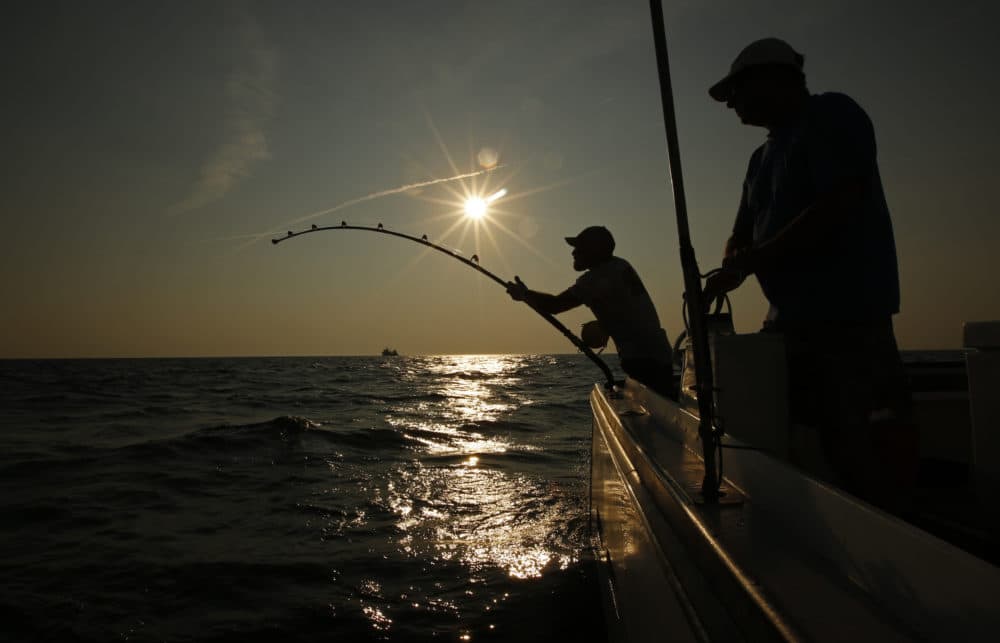Advertisement
Maine Fisherman Says 'Sea-To-Table' Is Path To Sustainability — For Oceans And His Business

It's tough to be an independent commercial fisherman, and regulations designed to manage fish populations are part of the reason why.
The government has imposed a quota system: fishermen have to pay to catch certain kinds of fish, like cod. Cod is deemed to be in low supply. So, fishermen are only allowed to catch a limited amount of it. They can pay to lease someone else's quotas, so they can catch more. But that's expensive, and makes it harder to turn a profit.
One fisherman in Maine is trying to fish more sustainably — and make a living doing it.
"The average fish that you go and eat at an average seafood restaurant has been around for 10 days and traveled 7,000 miles. We beat that by about 99.9 percent," says Tim Rider, who's adopted a sea-to-table method that means consumers get fresh seafood just a few days — or even hours — after it was caught.
Instead of selling fish through wholesalers who control the price, Rider's company New England Fishmongers sells fish directly to local restaurants and consumers.
Considering the strict regulations and fishing quotas that commercial fishermen face, Rider focuses on quality over quantity in order to compete with larger fishing companies. The fish are bled and gutted on the boat, which Rider says yields a higher quality product. This approach also proves to be less wasteful, he says.
"We have all this beautiful fish coming off the day fleet that we're basically throwing out or selling for pennies on the dollar. People can't even make a living," Rider says. "One of the ways that we've defeated that, or are trying to defeat that, is getting that fish as quickly as possible to our customers so they see the benefits of fresh fish."
Interview Highlights
On what customers think of his business practice
"We own a business where we sell our fish directly to our customers, restaurants and consumers alike. It's my whole life of making this work, and what we've seen is when you cut out a lot of this tap dancing in between seafood, we're getting our fish directly to our customers 24 to 48 hours after they're caught. It's a fresh fish, the freshest fish they've ever seen. It's been showcased in Food & Wine magazine. Our customers have supported us and love the fresh fish. And it really has fueled my fire to keep doing this, that people believe in what we're doing. The fish is the best they ever had."
On treating the fish more humanely
"What we basically do, is we take the best care of the fish on the boat that we can. We bleed our fish, we brine our fish, we make sure they're packed in ice and work diligently at the quality of our fish."
On the benefits of a sea-to-table approach
"One of the benefits that the culinary world has seen is a shelf life, it holds up tremendously well. [A chef] can buy our fish on Wednesday and serve it on Saturday, where the fish that's been around for two weeks that hasn't been treated that well, he's already starting to throw out.
"The other benefit of this too is ... these [chefs] are connected with the product like they're connected with the farmer that raises the produce and the beef and everything, they know who we are and they can call us and ask us about what we're catching."
Julia Corcoran produced this interview and edited it for broadcast with Kathleen McKenna. Serena McMahon adapted it for the web.
This article was originally published on January 22, 2019.
This segment aired on January 22, 2019.
